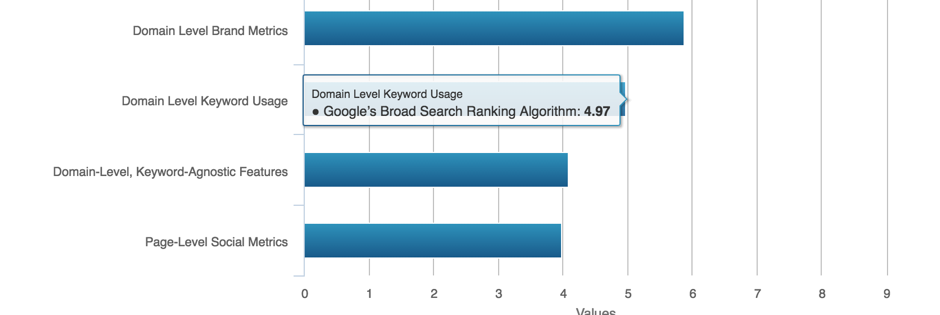
Where Should Exact Match Keywords Be Located?
April 20, 2017
Do I Need a Mobile-Optimized Strategy for My Website?
April 24, 2017In 2015, marketing analytics company Moz surveyed over 150 marketing professionals specialising in Search Engine Optimisation. Respondents rated the levels of influence exerted by ranking factors on a scale of 1 (not influential) to 10 (highly influential). (Source)
Page authority ranked as the most important ranking factor with a relative score of 8.22. In comparison, keyword usage (within the title element, H1s, and alt text) ranked at a score of 4.97.

Source: Moz
This study suggests keyword usage in your H1 tag is still important, but it’s not the most important element on your pages. Think of the content structure on your webpage as an outline. It’s a tiered approach to presenting information to users and search engines. It really doesn’t matter what header tag you use, so long as you present your most important concepts upfront and closer to the top of the page.
The header tag your headline is wrapped in has little to no influence on your overall SEO. Whether it is an H1, H2, H3, or so on, is only used for styling purposes.
H1 tags used to be more important, but search engines got smarter, and realized that web designers were more likely to use header tags to define style. This means that from a purely SEO perspective, it now matters much less to have your target keyword as the first word in an H1 tag.
Remember: You’re optimizing your page for users first and foremost, which means that you want to tell them ASAP what your page is about through a clear headline.
Read more: 7 Tips to Create Killer H1 Tags
Adapted from our eBook: 18 SEO Myths You Should Leave Behind In 2017
{{cta(‘bdea50f8-bad7-42cb-9ece-b4702d144295’)}}


